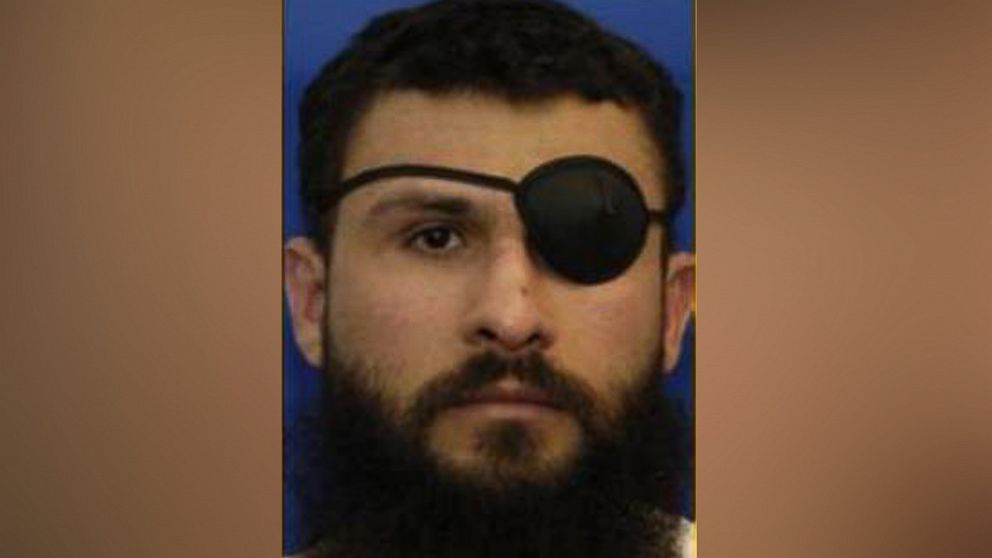Gitmo Detainee Abu Zubaydah Appears in Public, Makes Case for Release
He has not been seen publicly since he was captured in Pakistan by the CIA.

— -- Abu Zubaydah, a high-profile detainee at the Guantanamo Bay military prison, appeared publicly for the first time at a hearing today that will determine if he is still deemed a threat to the United States or whether he could be eligible for a transfer out of the detention camp. He has not been seen publicly since he was captured in Pakistan by the CIA in March 2002.
Mistakenly believed to have been one of the top officials in al-Qaeda, Zubaydah, 45, whose real name is Zayn al-Ibidin Muhammed Husay, was waterboarded 83 times and endured several other enhanced interrogation techniques used by the CIA in its secret detention program. It was later determined that U.S. intelligence overstated Zubaydah’s role in al-Qaeda.
Zubaydah was among the CIA detainees transferred to Guantanamo in September 2006 when President George W. Bush ended the CIA’s secret prison network. Zubaydah has never been formally charged with a crime during his 14 years in custody.
He appeared before a periodic review board at Guantanamo that determines whether detainees remain terrorist threats or should be cleared for transfer.
Live video of the hearing was streamed to the Pentagon, where a small group of reporters and representatives from advocacy groups watched the proceedings.
According to one of the reporters who saw the feed, Zubaydah did not speak during the proceedings. Dressed in white, he sported a well-trimmed beard and wire-rimmed glasses. An eye patch he has used to cover the left eye he lost during his 2002 capture was apparently dangling from his neck.
Periodic review board public hearings consist of the reading of statements presented in advance by the government and a detainee’s representatives. The hearings then move into a closed, classified session, during which board members may question the detainee.
A statement from Zubaydah’s representative read, “Although he initially believed that he did not have any chance or hope to be released,” Zubaydah has been willing to participate in the periodic review process. “He has come to believe that he might have a chance to leave Guantanamo through this process.”
He “has no desire or intent to harm the United States or any other country, and he has repeatedly said that the Islamic State is out of control and has gone too far,” it continued.
Zubaydah has expressed a desire to be reunited with his family and is said to have “some seed money that could be used to start a business after he is reintegrated into society and is living a peaceful life.”
A U.S. government statement described Zubaydah as having played “a key role” in al-Qaeda’s communications with supporters and operatives. The White House has claimed he “closely interacted” with al-Qaeda’s second in command at the time, Aby Hafs al-Masri.
The government said that Zubaydah “probably retains an extremist mindset” and that he has not made extremist statements “probably to improve his chances for repatriation.”
In June, he was expected to testify at a court proceeding for the 9/11 plotters at Guantanamo, but that testimony was delayed after his military lawyer raised objections about the testimony.




